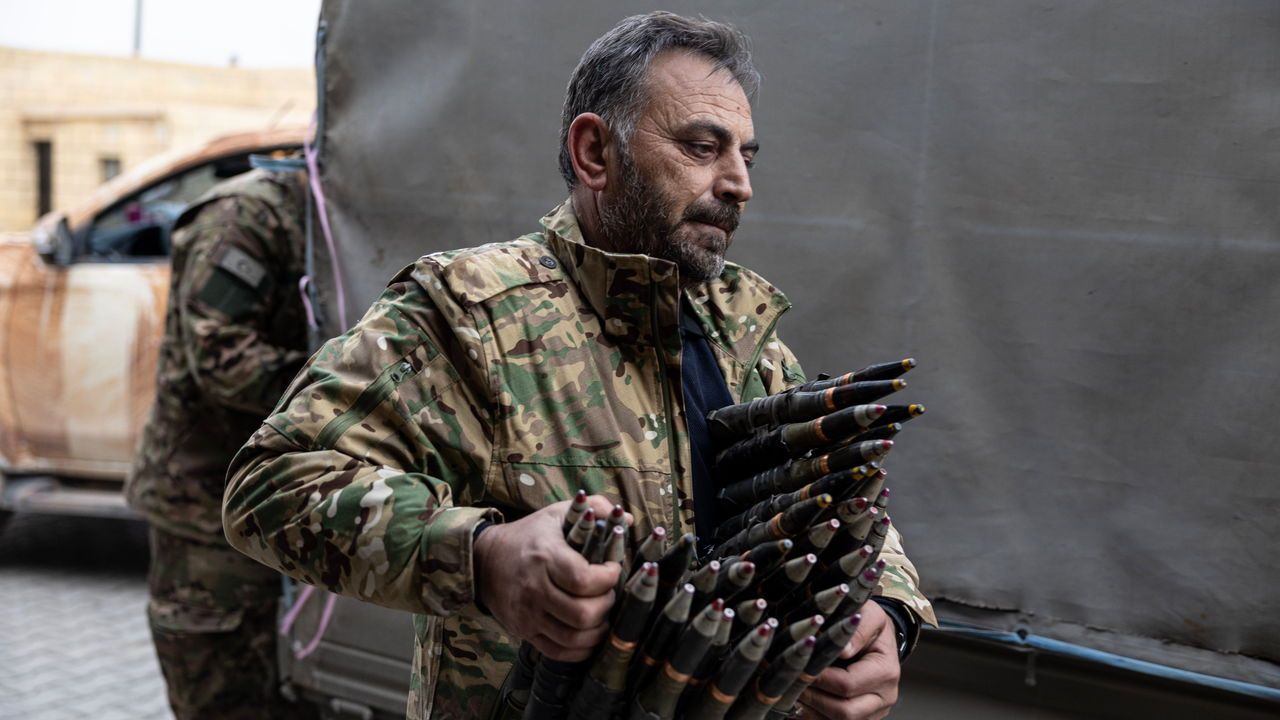- by Goma
- 01 30, 2025
-

-
-
Loading

Loading


FOR ALMOSTSDFISSDFSNASNA SDF ISSNAHTSSNAHTS SDFPKKHTSSDFSDFPKKPKKPKK,PKKPKKSDF a decade, Turkey’s president, Recep Tayyip Erdogan, having given up hope of regime change in Syria, focused instead on keeping the country’s Kurdish minority in check. Over and over, he asked America to break with the Syrian Democratic Forces (), the predominantly Kurdish militia that helped America defeat Islamic State (), withdraw American troops from Syria’s north-east, and outsource security in the region to Turkey and its proxies. Turkey’s leader will probably make Donald Trump, the incoming American president, a similar offer. But the collapse of Syria’s regime means he may also present Mr Trump with a Like most Syrians, the Kurds are celebrating the end of Bashar al-Assad’s murderous reign. But their dream of autonomy is starting to fade, and fast. Already, the has come under attack by the rebel Syrian National Army (), a Turkish proxy (and an enemy of Mr Assad and his government). On December 1st, the seized Tel Rifaat, a town close to the Turkish border, which had been under Kurdish control. A week later, its fighters took Manbij, another stronghold. They now appear to be marching on Kobane, which the Kurds saved from an onslaught in 2015. Mr Erdogan had previously warned of a new Turkish offensive against the Kurds, designed to broaden the “safe zone” his troops have carved out in Syria. Through the , he appears to have launched one already.The offensive by Hayat Tahrir al-Sham () jihadists and fighters against regime forces in northern Aleppo probably went ahead with Turkey’s approval. But Turkey could not have expected what would happen next, or hoped for a better outcome. Syria’s future is uncertain. More chaos, or even a new war, could be around the corner. But for now Mr Erdogan’s hand in Syria is stronger than ever.For years, Turkey’s policy in Syria was hostage to Russia, whose control over swathes of Syria’s airspace gave it an effective veto over Turkish operations south of the border. Policymakers in Ankara dreaded the prospect of a Russian and regime offensive against Idlib, the province where had been holed up since 2017. Such an attack would probably have propelled hundreds of thousands of Syrians, accompanied by armed radicals, into Turkey. That danger is now gone. Russia’s grip over Turkey has loosened as a result.More than 3m Syrian refugees live in Turkey today. Some may now decide to return to Syria. Most, though, will think twice before going back to a country reeling from 13 years of war. But what a difference the past two weeks have made. A Turkey that feared a new wave of displaced Syrians suddenly has reason to expect many of its own refugees to head home.But what now matters to Mr Erdogan more than anything else is the chance to cripple the, which Turkey considers an extension of the Kurdistan Workers’ Party (), its sworn enemy. (Turkey views both as terrorist groups.) Had the Assad regime, weakened and bruised, stopped and company at the gates of Damascus, the Kurds might have retained or even enlarged their zone of autonomous rule. Instead, they are on the back foot, facing Turkish mercenaries in the north of the country and possible Arab upheavals elsewhere.For the Sunni Arabs who form a majority in many of the areas under Kurdish control, rule was much more palatable than that of Islamic State or Mr Assad’s henchmen. But the dawn of Sunni rule in Damascus has changed the equation. “Now that the regime is gone, the [Arabs] no longer have a reason to support the [],” says Fabrice Balanche, an academic who studies the region. “The Kurds are completely isolated.”One thing the Kurdish insurgents can still count on is American protection, in the form of 900 or so of the country’s troops posted alongside them. Mr Erdogan hopes to change that, by convincing Mr Trump to send the soldiers packing as soon as he enters the White House. Such hopes are not idle. In 2019, Mr Trump pulled American forces back from the Syrian border and rolled out the carpet for Turkey’s troops, before changing his mind. Earlier this year, he reportedly mused about a complete withdrawal from Syria. Members of his team, including Mike Waltz, his security adviser, and Marco Rubio, the presumptive secretary of state, both of whom are close to the Kurds, may yet disabuse him of the idea.Mr Erdogan is holding a grenade launcher in one hand and an olive branch in the other. Over the past month, he has made noises about a possible deal with the . Devlet Bahceli, his main coalition ally, has called on Abdullah Ocalan, the ’s imprisoned leader, to renounce violence in exchange for possible parole. “The moment you bury your guns,” Mr Erdogan said in a recent speech, addressing the “your path will be clear.”He seems to have the wind at his back. The is already a depleted force inside Turkey and a hobbled one in northern Iraq. Scores of Kurdish politicians in Turkey are behind bars. Since early November, Turkey’s government has renewed its crackdown on the country’s main Kurdish party, ousting some of its democratically elected mayors from office.Mr Erdogan, evidently, does not want to negotiate a settlement with the , but to impose one, through a combination of force in Syria and political pressure at home. He may soon get his way. “Turkey has a huge opportunity” to bring the to its knees, says Omer Ozkizilcik, a non-resident fellow at the Atlantic Council, “after Trump comes into office, or even before.”